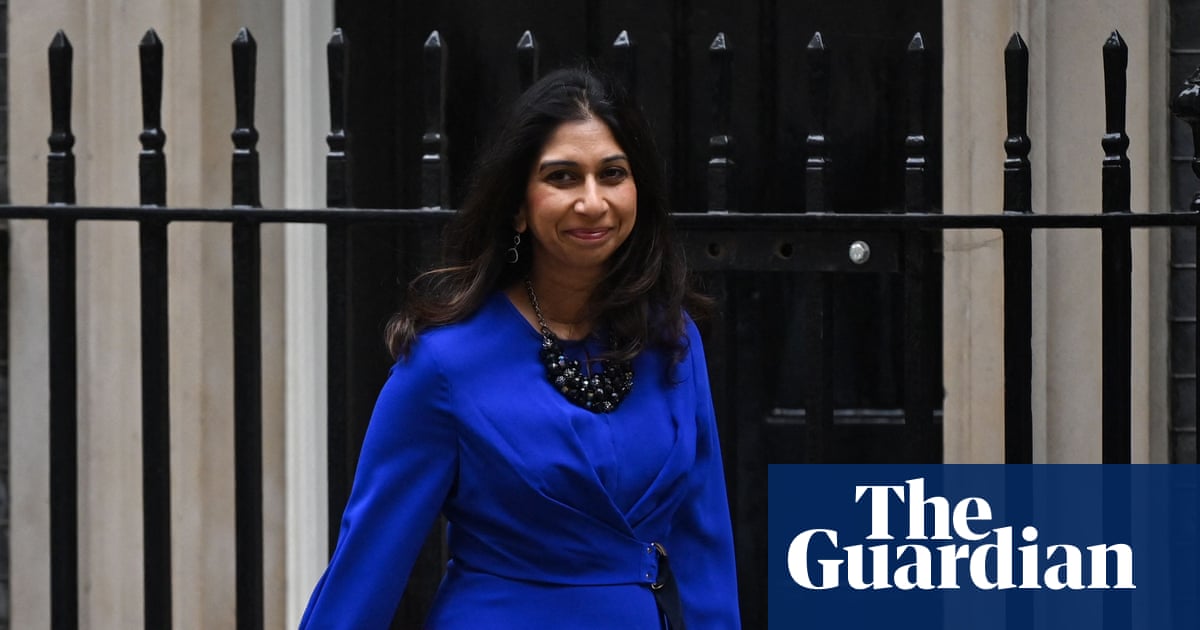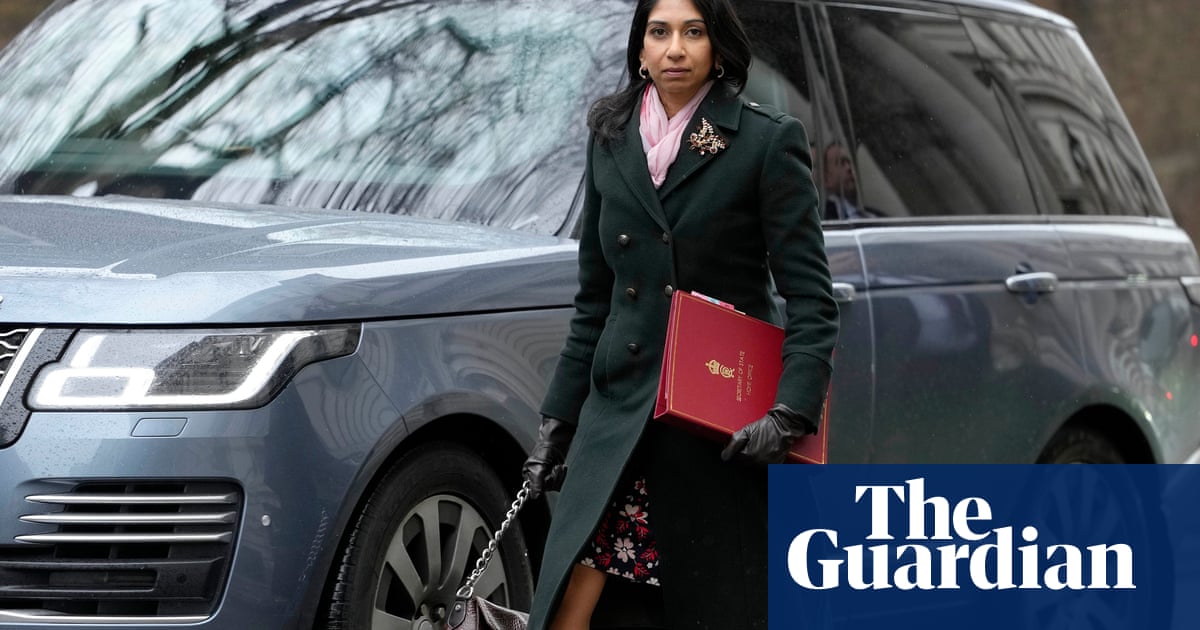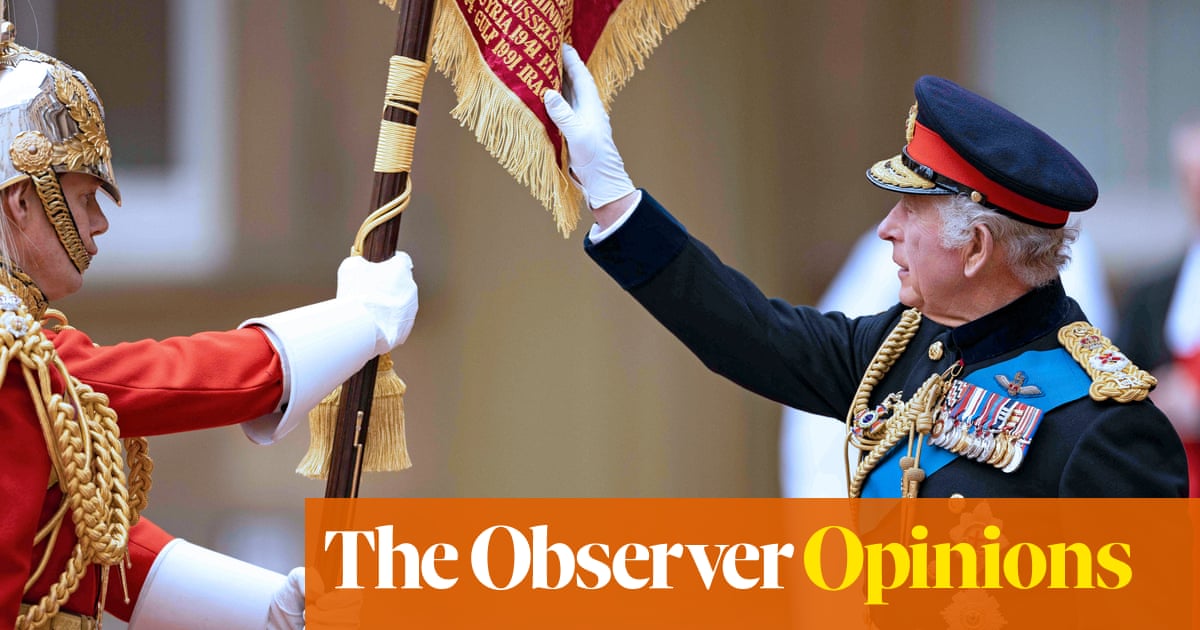
Suella Braverman will appeal on Tuesday to world leaders and political thinkers to consider rewriting key refugee rules so they are “fit for the modern age”.
In a move to alter an agreement that undermined UK plans to send asylum seekers to Rwanda, the home secretary will argue that the United Nations 1951 refugee convention must be reformed to tackle a worldwide migration crisis.
Her words have prompted deep concern from refugee charities who claim she is urging the international community to “pull up the drawbridge” on people who have suffered torture and abuse.
Addressing the American Enterprise Institute in Washington, Braverman will say: “It is incumbent upon politicians and thought leaders to ask whether the refugee convention, and the way it has come to be interpreted through our courts, is fit for our modern age. Or whether it is in need of reform.”
The UNHCR, the UN’s refugee agency, claimed in June that the UK government’s £140m deal with Rwanda was “incompatible with the letter and spirit” of the convention.
The body questioned the legality of transfer arrangements of asylum seekers, saying that article 34 calls on states to facilitate the assimilation and naturalisation of refugees.
Enver Solomon, the chief executive of the Refugee Council, said Braverman’s plans were seeking to undermine a belief in a shared humanity.
“A world where the UK and other western nations pull up the drawbridge and turn their backs on those who have been tortured, persecuted and faced terror because of their gender, sexuality or any other reason, is a world which turns its back on a belief in shared humanity and shared rights,” he said.
“After the horrors of the second world war, the international community chose to stand up for those principles. Abandoning them is not an option.”
Sonya Sceats, the chief executive at Freedom from Torture, said: “Having already trampled over international law with the Illegal Migration Act, it is shocking to see the home secretary imploring the US and other democracies to tear up treaties designed to protect human rights,” she said.
The home secretary will argue that case law arising from the convention has lowered the threshold so that asylum seekers need only prove that they face “discrimination” instead of a real risk of torture, death or violence.
Braverman will say that Article 1 of the convention defines the term “refugee” as applying to those who, “owing to well-founded fear of being persecuted for reasons of race, religion, nationality, membership of a particular social group or political opinion’ cannot safely reside in the country of their nationality”.
She is due to say: “I think most members of the public would recognise those fleeing a real risk of death, torture, oppression or violence, as in need of protection.
“However, as case law has developed, what we have seen in practice is an interpretive shift away from “persecution”, in favour of something more akin to a definition of ‘discrimination’.”
Braverman will say that the change has expanded the number of those who may qualify for asylum to “unsustainable” levels, adding: “Let me be clear, there are vast swathes of the world where it is extremely difficult to be gay, or to be a woman.
“Where individuals are being persecuted, it is right that we offer sanctuary.
“But we will not be able to sustain an asylum system if in effect, simply being gay, or a woman, and fearful of discrimination in your country of origin, is sufficient to qualify for protection.”
In her speech, Braverman will also ask why the UNHCR has disagreed with UK government’s claim that people seeking refuge should claim asylum in the first safe country they reach.
“The vast majority have passed through multiple safe countries, and in some instances have resided in safe countries for several years,” she will say.
“In this sense, there is an argument that they should cease to be treated as refugees when considering the legitimacy of their onward movement.”
The UNHCR has been approached for a comment.
Nearly 24,000 people have been detected crossing the Channel in small boats this year so far, despite Rishi Sunak’s promise to “stop the boats”.
The government’s plans to deal with high levels of unauthorised migration have currently stalled, with the Rwanda plan currently tied up in the courts, while attempts to accommodate 500 migrants on a barge off the Dorset coast are on pause after legionella was detected aboard.
In a further development, Home Office sources have confirmed reports that Braverman is supporting plans for foreign care workers with fewer qualifications to be blocked from bringing family members to the UK. She wants to tighten the rules for the health and care worker visa, which allows migrants to move to the UK to work in social care and bring dependants with them.












